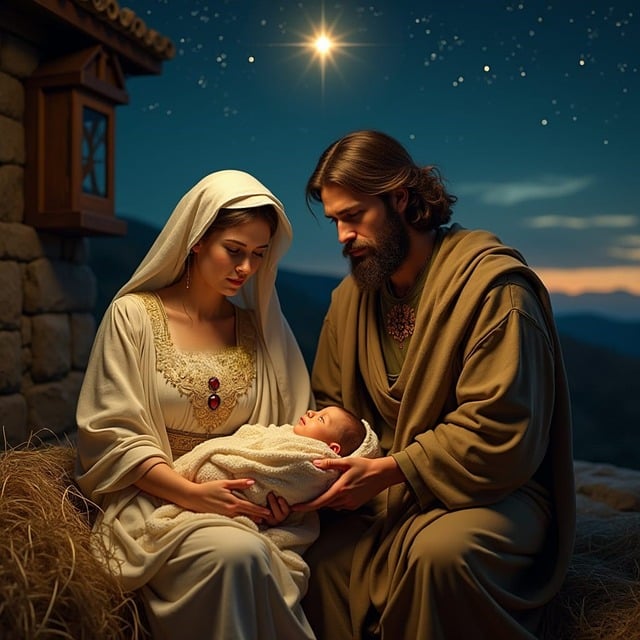Next Wednesday we will celebrate one of the holiest days of the year as we commemorate the birth of Jesus Christ. Although His sacrificial crucifixion provides our salvation and His miraculous resurrection secures our victory over death, His birth in the Bethlehem manger is what got it all moving. Let’s pause to consider a bit of what this means.
In this day of Zoom meetings and virtual visits, how refreshing it is to sit down face to face with someone over a meal or for a chat. This is exactly what God did. He didn’t send an email, a text, or even a representative. He didn’t facetime us from heaven or share a snapchat. He personally came to earth to be Immanuel, God with us.
Although John’s Gospel doesn’t include the nativity story as does Luke’s, John condenses it all down to the profound simple truth that, “The Word became flesh and dwelt among us.” The eternal Word of God that created all that is, that expresses the Father’s thoughts and will, and Who is one with the Father, actually entered human flesh and lived and walked among the humans He had created.
In Jesus Christ, we have all the fullness of the Godhead bodily (Colossians 2:9.) Although we will never fully comprehend the mystery of the holy Trinity, we can celebrate its truth and purpose nonetheless. And because the Son did what He did, He opened the door for the Holy Spirit to abide always with those who accept Jesus’ salvation.
When the Holy Spirit began to form Jesus in Mary’s womb, God made Himself vulnerable to the consequences of His creatures’ sin. He became susceptible to sickness and disease, to insult and abuse, and to ridicule and rejection. He encountered and experienced all of these to some degree before finally enduring sin’s ultimate penalty, death itself, even though He had never sinned.
The fact that the Eternal God wanted to come in person to be with us is not only a great miracle, but also an incredible display of His love. Such voluntary vulnerability from One who didn’t need to extend it is astonishing and humbling. There could only be one motivation that would inspire such willing sacrifice: love. Nothing else explains why someone would do what Jesus did. And indeed, that’s exactly what Jesus Himself declares in John 3:16 where He says, “God so loved the world that He gave His only begotten Son…” That our Creator would love us sinful beings that much is, like the Trinity, beyond our ability to comprehend.
Enmity keeps others far away. Toleration holds them at arm’s length. But love draws close and that’s what happened on that first Christmas. In love, God Himself drew close to all those He created as the Bethlehem Babe entered time and space.
Since Jesus is the example and pattern for all Christians, we too are privileged and obligated to show love to others and draw close to them. Whenever possible, we too should be present in their lives. In spite of all the technological gadgetry that enables communication over distance, believers are called to follow Jesus into being personally present with others as much as human limitations allow.
Christianity is a relational religion. It does involve the vertical connection with God through Jesus, but as we do that, we then are to reach out horizontally to other people. One of the greatest gifts anyone can give to someone else is our time and Jesus came to give us all of His.
As we celebrate the holy birth of Jesus next week, may we appreciate the love, mercy, and grace God showed and continues to show in coming in person to be with us that we might be with Him forever. If you’ve never accepted the gift of eternal life Jesus came to purchase for you, do that today that you might enjoy His presence now and always. Merry Christmas, George
